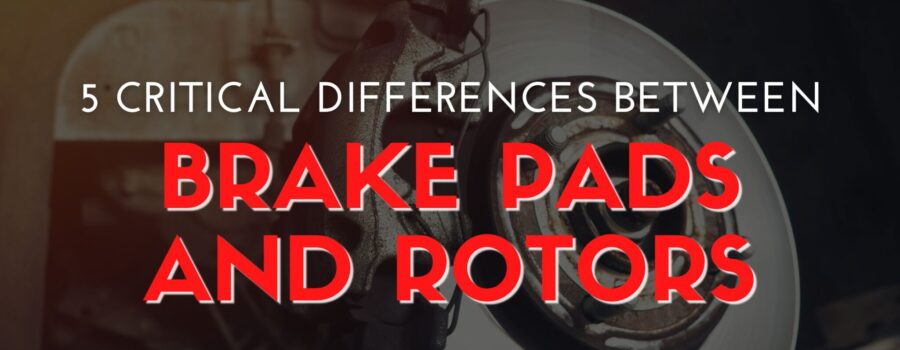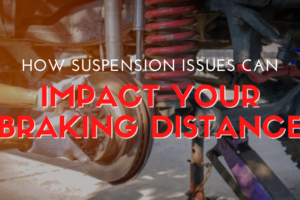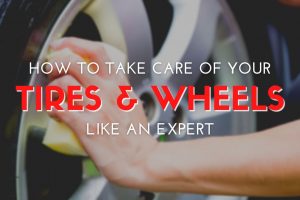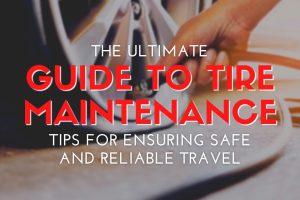5 Critical Differences Between Brake Pads and Rotors
When it comes to keeping your car safe on the road, few systems are more vital than your brakes. Yet, many drivers don’t understand the difference between brake pads and rotors, or why both are essential for proper braking performance. Ignoring problems with either can lead to longer stopping distances, costly repairs, or even dangerous situations.
In this post, we’ll cover the 5 key differences between brake pads and rotors, how they work together, when they need replacing, and why regular brake maintenance can save your life—and your wallet.
What Are Brake Pads?
Brake pads are friction components that press against the brake rotors (or discs) to slow or stop your vehicle. When you press the brake pedal, hydraulic fluid sends pressure to the calipers, which squeeze the brake pads against the spinning rotors.
Types of Brake Pads:
- Ceramic – Quiet, clean, and long-lasting
- Semi-metallic – Durable, better for performance
- Organic – Softer, more affordable, but wear faster
Brake pads are a wear item and need to be replaced periodically based on driving habits, terrain, and vehicle weight.
What Are Brake Rotors?
Brake rotors are large, round discs attached to each wheel. When the brake pads press against the rotors, the resulting friction slows the wheel and brings the vehicle to a stop.
Types of Brake Rotors:
- Solid rotors – Found in smaller or economy vehicles
- Vented rotors – Better heat dissipation, used in most modern cars
- Slotted or drilled rotors – Improve performance under heavy braking conditions (like towing or racing)
While rotors are more durable than pads, they still wear out over time—especially under heat stress, which can cause warping or cracking.
5 Key Differences Between Brake Pads and Rotors
1. Function
- Brake Pads: Provide friction to stop the car.
- Brake Rotors: Receive the friction and convert it into heat to slow the wheel.
Both components are essential. You can’t have one without the other—they work together as part of a system.
2. Material
- Pads: Made from ceramic, metal, or organic materials.
- Rotors: Usually made from cast iron or steel, sometimes with carbon composites in performance models.
Material differences impact wear, noise, and heat resistance.
3. Wear Rate
- Pads: Typically wear faster—replacement every 25,000 to 70,000 miles.
- Rotors: Last longer but still need replacement, often every 50,000 to 70,000 miles (depending on heat and driving style).
Replacing only the pads on worn rotors can cause uneven wear and reduce braking efficiency.
4. Cost
- Pads: Less expensive to replace ($100–$300 per axle depending on vehicle and materials).
- Rotors: More expensive, especially if upgraded or if a full brake job is needed ($300–$600 per axle including labor).
Ignoring pads too long can cause rotor damage—costing you more in the long run.
5. Symptoms of Failure
- Pads: Squeaking or grinding noises, longer stopping distances, low brake fluid
- Rotors: Vibrations or pulsating when braking, visible scoring or warping, uneven wear
Any of these symptoms should be checked immediately to avoid safety hazards.
Why Both Pads and Rotors Matter
Even if just one part of the brake system is worn out, it impacts the performance of the other. New pads on worn rotors (or vice versa) can:
- Reduce braking power
- Cause uneven wear
- Create vibrations and noise
- Lead to premature failure
For safe, smooth, and reliable braking, both components must be in good shape and work in harmony.
Signs You Need Brake Service
Look out for these red flags:
- Grinding or squealing when braking
- Vehicle pulls to one side
- Brake warning light on the dashboard
- Brake pedal feels soft or spongy
- Shaking or pulsing during stops
- Burning smell during braking
If you notice any of these, get your brakes inspected immediately.
Common Brake Questions
Q: How do I know if I need new brake pads or rotors?
A: A technician can measure pad thickness and rotor condition. If pads are under 3mm or rotors show scoring/warping, it’s time for replacements.
Q: Can I replace just the brake pads?
A: You can—but it’s not always recommended. If your rotors are worn or uneven, it’s best to replace or resurface them with the pads.
Q: How long do brake pads and rotors last?
A: Pads: 25,000–70,000 miles. Rotors: 50,000–70,000 miles. Driving habits heavily impact lifespan.
Q: What’s the difference between resurfacing and replacing rotors?
A: Resurfacing smooths minor imperfections, while replacement is necessary for deeper damage, warping, or if below minimum thickness.
Q: Is brake squealing always bad?
A: Not always. Some squeal is normal, especially with certain pad materials. But persistent squealing or grinding means it’s time for service.
Tips for Longer Brake Life
- Avoid Hard Braking: Coast when possible.
- Don’t Ride the Brakes: Use lower gears on hills.
- Get Regular Inspections: Every oil change or 6 months.
- Flush Brake Fluid: Every 2–3 years.
- Rotate Tires: Helps maintain even braking and wear.
Professional Brake Service vs. DIY
While some car owners try DIY brake jobs, it’s not for everyone. Modern braking systems include sensors, calipers, and anti-lock systems that need precision.
Let a professional handle:
- Pad and rotor replacements
- Brake fluid flushing
- System diagnostics and calibration
Your safety—and your passengers’—depend on it.
Contact Us
Postle Tire Barn has been serving the tire and automotive needs of the Tuscaloosa and West Alabama area for more than 40 years. Whether you need new brake pads, rotor service, or a complete brake system inspection, we’re the ones to know.
Give us a call at 205-391-0062 or email us at [email protected]. Let our brake experts help you drive with confidence and peace of mind.





Recent Comments